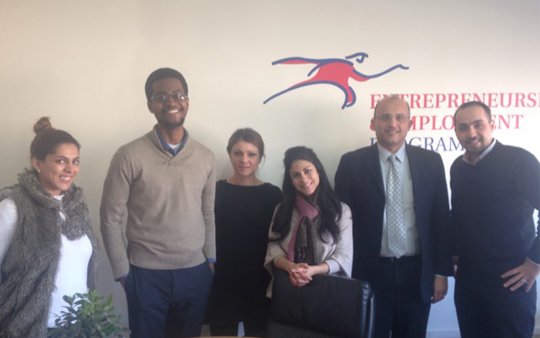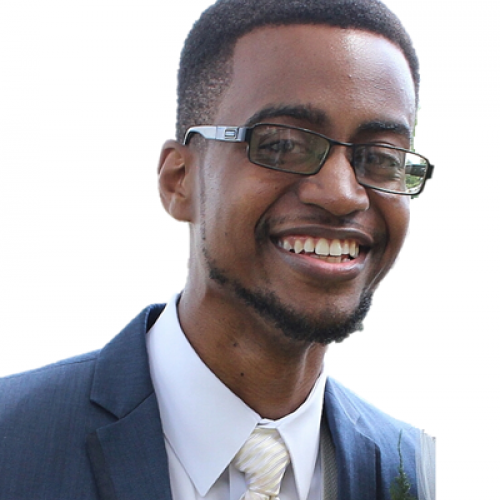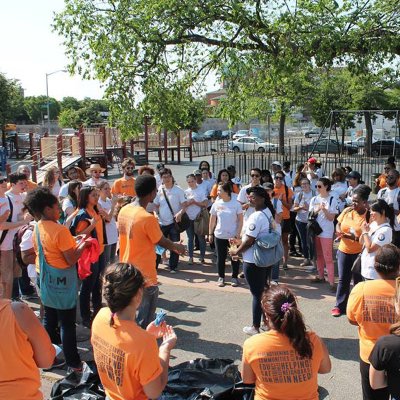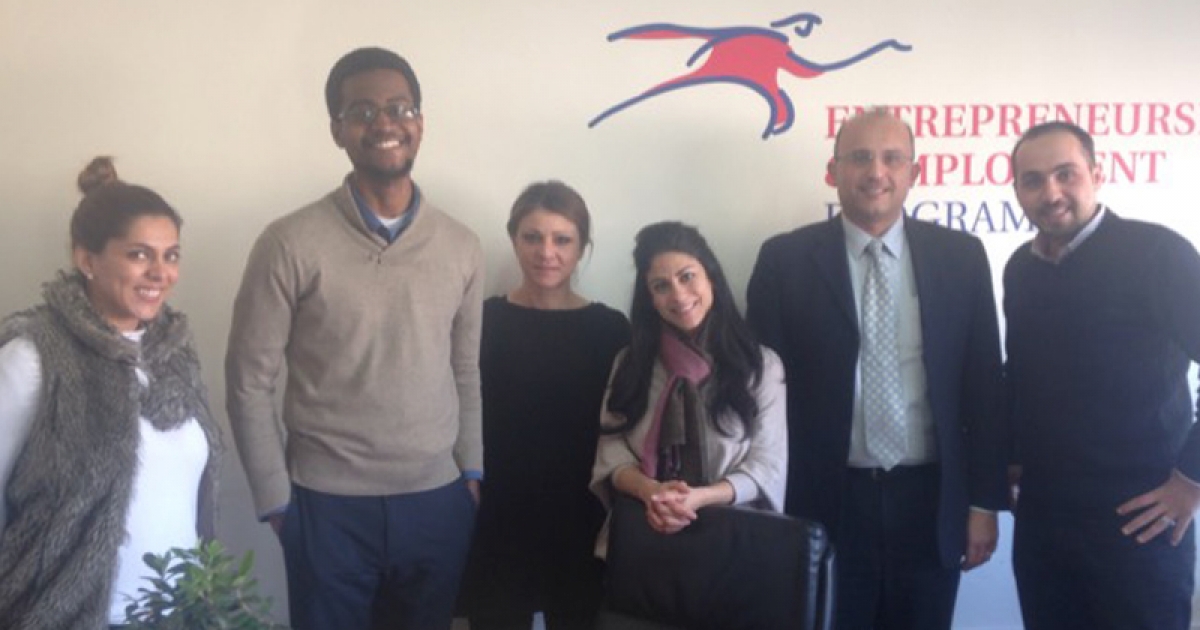“Now Is Always The Best Time to Make a Difference”
William is from USA. He is an aspiring leader in community economic development, social entrepreneurship, faith and the arts. In addition to his passions, he works to develop cross-sector collaborations to positively affect youth development and foster global citizenship. He is inspired to create programmes, spaces and opportunities that will help transform lives. William Leverett's mentor is Femi Oke.
Q: Tell us a few things about your country, and also your life's story!
A: I am a US citizen and a New York native that has lived in Jordan and is currently living in Morocco. I live in Morocco with my wife who is doing her PhD research on the MENA region, which is also why we lived in Jordan. When I think of New York City it is a phenomenal mix and blends of cultures and people from all walks of life and where people get exposed to world cultures early.
When I think of the U.S., it is a nation of immigrants, with an abundance of dreams and many life narratives and struggles. I have a background in the arts, non-profits consulting, municipal government, project management and youth development. My family roots are deeply African American and some Native American ancestry as my dad’s side of the family started with the marriage of an African slave and a Native American woman. I am also a Christian who seeks to love and serve. Valuing cultures, I have had the opportunity to travel to Canada, South Africa, India, China, Ghana, Jordan, Jerusalem, Spain, The Netherlands and Morocco.
Q: What is your view of the world as it is today? And how do you define the concept of a better world?
A: I believe the world needs more connection to better understand our collective human identity, hope, empathy and love. I think connection as a human race allows us to get out of our comfort zones mentally and geographically, empathy allows us to share each other’s burdens and pain, hope is needed to press forward while love binds all of us up and eliminates discrimination. While we can set up great public policies, I think our hearts need to be turned toward one another in order to engage in sustainable deep level change. One of the biggest challenges I see is making sure we are not apathetic towards each other’s struggles. A better world would look like us challenging ourselves to love our fellow human being daily beyond our immediate culture and environments, acknowledging each other, listening to each other, our needs and engaging one another for greater progress. I also believe acquiring specific knowledge of how to navigate and lead is more necessary than ever before. Collaboration between different sectors, ideological groups, ethnic and racial groups can help address the core social issues of our time.
Q: As a young individual what are a few of the hurdles that you had to overcome up until today?
A: Closing the opportunity gap was a hurdle that I have overcome due to family and community support. In NYC there is a large opportunity gap in terms of resources and there is a tale of two cities; one with an abundance of resources, opportunities, wealth and more. My family comes from modest means and have worked hard to provide a better livelihood for me and my siblings, my dad serving as a judge in the legal system and my mom in the educational system. Having moved from Harlem to St. Albans, Queens I got to see communities of abundance and communities in need. The same goes for school and university systems as there are some schools that had honours tracks and communities and non-honours tracks. While having been in both, I believe in the importance of merit-based opportunities, the gap is that more youth need to be in the communities that know of such opportunities. While the life potential of the individuals is the same, the opportunities are different. Balancing those equity scales is what I am focused on by cultivating diverse leaders from underserved communities from a local to a global level.
Others hurdles involved avoiding negative roads as there are so many elements that can distract youth from their potential such as drugs and gang activity in NYC. As a youth, I remember overcoming bullying with a strong sense of self, faith and African American history, choosing not to participate in drugs or gangs and I was blessed enough to have positive mentors in my life as well who pointed me in the right direction. What fuels me is that I know the youth who did not have such figures, did not know their worth, suffered the consequences of poor choices and some who lost their lives. I think there is a current challenge of restoring healthy policing relationships especially in communities of, particularly underrepresented minorities. Having family in the police force and knowing not all police officers operate this way, it still does not change the reality that happens to many black and Latino males including myself and the historical mistreatment that has occurred. Being black and abroad, while we have met great people, I and my wife have also seen and experienced forms of racism by some people that are still remnants of a colonial educational system. We have met people who still struggle with colourism and prejudice, who believing whiteness equates to being better and not knowing that at some point in time, human civilization migrated from Africa. These collective identity challenges are something that is deeply seeded, that not enough people talk about but only love, a spirit of excellence and collective responsibility can truly overcome it.
Q: Why is the role of a mentor important for you?
A: Mentors help point out areas and experiences that you may not be privy to and help you accelerate areas of personal and professional growth. Through the advice of my mentor, I seek to accelerate the rate of social change I am currently making, elevate my thinking as a problem solver for social issues and be a bridge to inspire the leadership of the next generations.

Q: Do you have a lesson that life has taught you and you would like to share?
A: Belief, faith and prayer is powerful. Dare to explore and believe. I have a personal phrase that I follow which is "Now is always the best time to make a difference".
Q: Name a project, a foundation or a person in your country that you think is doing great work in helping improve other people's lives!
A: I appreciate NYC Service, one of my former employers as they are working to inspire volunteerism citywide and partner with multiple organisations in order to make it work. Nationwide I value programmes like AmeriCorps because they promote the idea of service and cross-cultural exchange.
Q: Share with us a phrase, a poem or a story that you love or you find interesting!
A: I love the Bible but a current scripture that resonates with me in this season is "Above all, love each other deeply because love covers a multitude of sins" 1 Peter 4:8.
I love Rudyard Kipling's poem "If", Maya Angelou's "I Know Why a Caged Bird Sings" and Marianne Williamson's notable passage called "Our Deepest Fear" from her book "A Return to Love". I value these because they challenge potential, courage and dreams. I also appreciate the poem "The Canvas" by a spoken word artist by the name of Propaganda where the theme is based around the premise "I'm not the artist, I'm the canvas" because it represents that we are all still works in the making.
Q: Tell us one thing that you have learned from your mentor.
A: Femi has taught me the value of being focused and relentless in pursuing my passion while pouring into others. The example of her career is amazing as she identified her passion early and continued to build and practice her craft even to this very day. That in addition to her willingness to work with me through my goals and connect me with her other peers inspires me to pay it forward as I continue to elevate.




